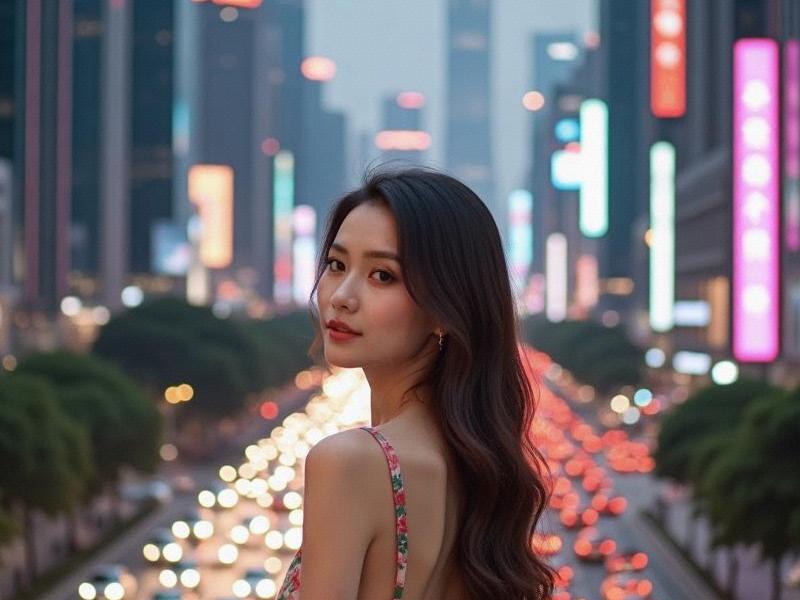This in-depth feature explores how Shanghai's women are crafting a new paradigm of Chinese femininity that blends traditional values with global sophistication, creating a unique urban archetype that's influencing women across Asia.

The morning light filters through the skyscrapers of Lujiazui as 28-year-old investment banker Li Yuxi adjusts her Prada glasses and checks her portfolio updates. Across town in the French Concession, fashion designer Chen Xia prepares for her boutique's launch of a qipao-inspired evening wear collection. Meanwhile, in Zhangjiang High-Tech Park, robotics engineer Dr. Wang Jiawei oversees testing of her team's latest AI-assisted surgical system. These are the faces of modern Shanghai womanhood - ambitious, cultured, and redefining what it means to be a Chinese woman in the 21st century.
Historical Foundations
Shanghai women have long occupied a special place in China's social fabric. The "Shanghainese Lady" (上海女人) archetype emerged in the 1920s as the city became China's most cosmopolitan port. "There's always been a particular confidence to Shanghai women," explains cultural historian Professor Zhang Wei. "They were the first Chinese women to wear Western dresses, attend university, and work in professional jobs." This legacy continues today, with Shanghai boasting China's highest percentage of female executives (38%) and entrepreneurs (45%) according to 2024 government statistics.
Education and Career Ascendancy
阿拉爱上海 Modern Shanghai women are among Asia's most educated demographic. The city's female university enrollment rate stands at 97%, with women comprising 52% of graduate students in STEM fields. "My parents encouraged me to pursue engineering," says Dr. Wang. "In Shanghai, a woman's worth isn't measured by marriage prospects alone." This educational foundation fuels career success - Shanghai leads Chinese cities in female CEOs (19% of companies) and female-led startups (41% of new businesses).
Fashion as Cultural Expression
Shanghai's streets serve as runways where traditional aesthetics meet global trends. Local designers like Chen Xia are reinventing Chinese elements for modern wardrobes. "My designs use qipao collars with minimalist European cuts," Chen explains. "It represents how Shanghai women balance heritage and progress." The city's fashion week has become Asia's second most important after Tokyo, with Shanghai-based influencers setting trends across Chinese social media platforms.
夜上海最新论坛 Social Dynamics and Relationships
Shanghai's dating scene reflects shifting gender norms. The average marriage age for Shanghai women has risen to 32 (compared to 28 nationally), with many prioritizing career development. "I want to establish my law practice before considering marriage," says 30-year-old attorney Fiona Wu. Matchmaking services report growing demand for "power couples" where both partners have advanced degrees and careers. Yet traditional expectations persist - a 2024 survey found 68% of Shanghai women still feel pressure to manage household duties regardless of professional status.
Cultural Icons and Representation
Shanghai-born actresses like Maggie Jiang and directors such as Vivian Xu are changing how Chinese women are portrayed globally. Xu's acclaimed film "The Huangpu Stories" featured complex female characters rarely seen in Chinese cinema. "Shanghai women don't fit the docile stereotypes," Xu notes. "We're showing the world the intelligence and agency of modern Chinese women."
上海夜网论坛
Challenges and the Road Ahead
Despite progress, challenges remain. The "leftover women" label still stigmatizes unmarried women over 27, and the gender pay gap persists at 18% in white-collar jobs. Yet Shanghai women continue pushing boundaries - recent years have seen growth in women's networking organizations, feminist literature circles, and advocacy groups promoting workplace equality.
As twilight descends on the Bund, the women of Shanghai - whether sipping artisanal tea in a hidden courtyard or presenting venture capital proposals in glass-walled offices - embody the city's dynamic spirit. They represent not just Shanghai's present, but the evolving future of Chinese womanhood itself.